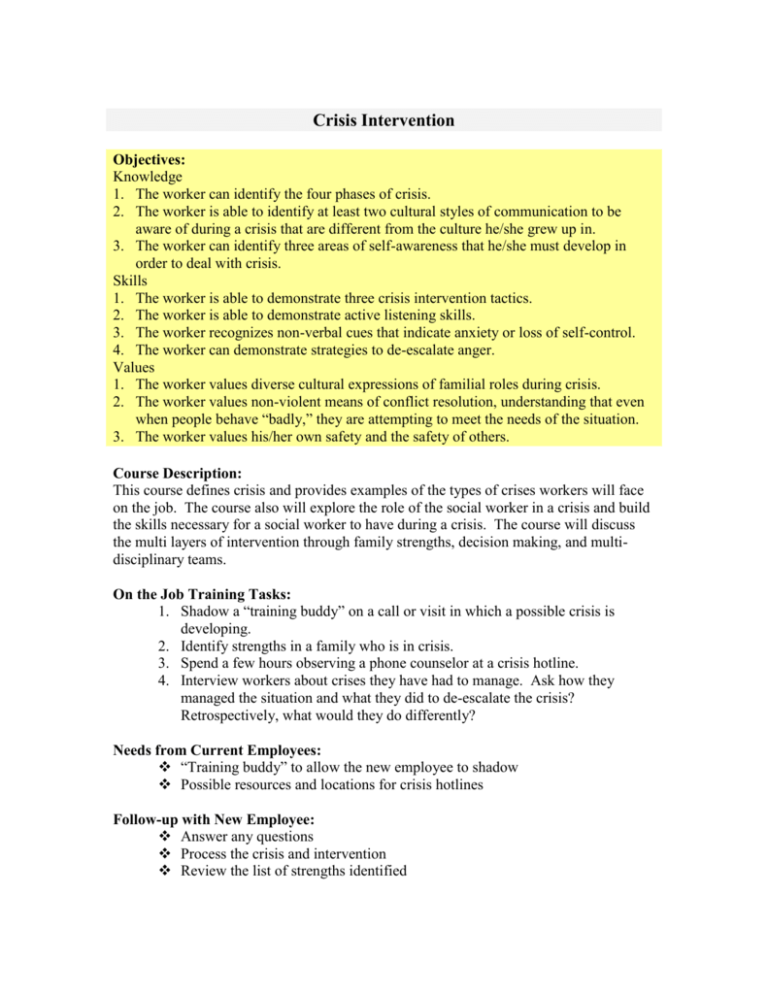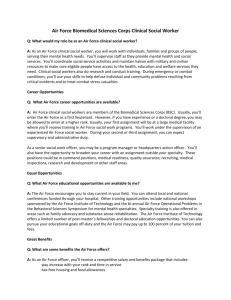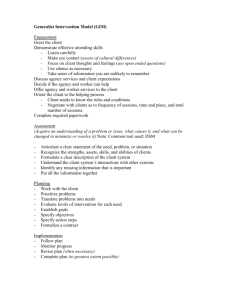Crisis Intervention Training: Objectives & Skills for Social Workers
advertisement

Crisis Intervention Objectives: Knowledge 1. The worker can identify the four phases of crisis. 2. The worker is able to identify at least two cultural styles of communication to be aware of during a crisis that are different from the culture he/she grew up in. 3. The worker can identify three areas of self-awareness that he/she must develop in order to deal with crisis. Skills 1. The worker is able to demonstrate three crisis intervention tactics. 2. The worker is able to demonstrate active listening skills. 3. The worker recognizes non-verbal cues that indicate anxiety or loss of self-control. 4. The worker can demonstrate strategies to de-escalate anger. Values 1. The worker values diverse cultural expressions of familial roles during crisis. 2. The worker values non-violent means of conflict resolution, understanding that even when people behave “badly,” they are attempting to meet the needs of the situation. 3. The worker values his/her own safety and the safety of others. Course Description: This course defines crisis and provides examples of the types of crises workers will face on the job. The course also will explore the role of the social worker in a crisis and build the skills necessary for a social worker to have during a crisis. The course will discuss the multi layers of intervention through family strengths, decision making, and multidisciplinary teams. On the Job Training Tasks: 1. Shadow a “training buddy” on a call or visit in which a possible crisis is developing. 2. Identify strengths in a family who is in crisis. 3. Spend a few hours observing a phone counselor at a crisis hotline. 4. Interview workers about crises they have had to manage. Ask how they managed the situation and what they did to de-escalate the crisis? Retrospectively, what would they do differently? Needs from Current Employees: “Training buddy” to allow the new employee to shadow Possible resources and locations for crisis hotlines Follow-up with New Employee: Answer any questions Process the crisis and intervention Review the list of strengths identified Ask questions such as: 1. What were the reactions to the crisis? 2. What was understood about why the client was so upset? 3. How did the “training buddy” handle the situation? Was this consistent with training? 4. What could have been done differently? 5. Was it difficult to identify strengths in a family who was in crisis? 6. What was the awareness of the things that would have been difficult to deal with in the same situation? Were they the same things for the “training buddy”? Note: 1. This is a training task which requires involvement from a “training buddy”. When a current employee is unavailable or a crisis is not anticipated, utilize a crisis hotline center. The same de-escalation skills and critical elements will be exercised in these settings. 2. Shadowing is the ideal On the Job training task for this topic. Notes:






